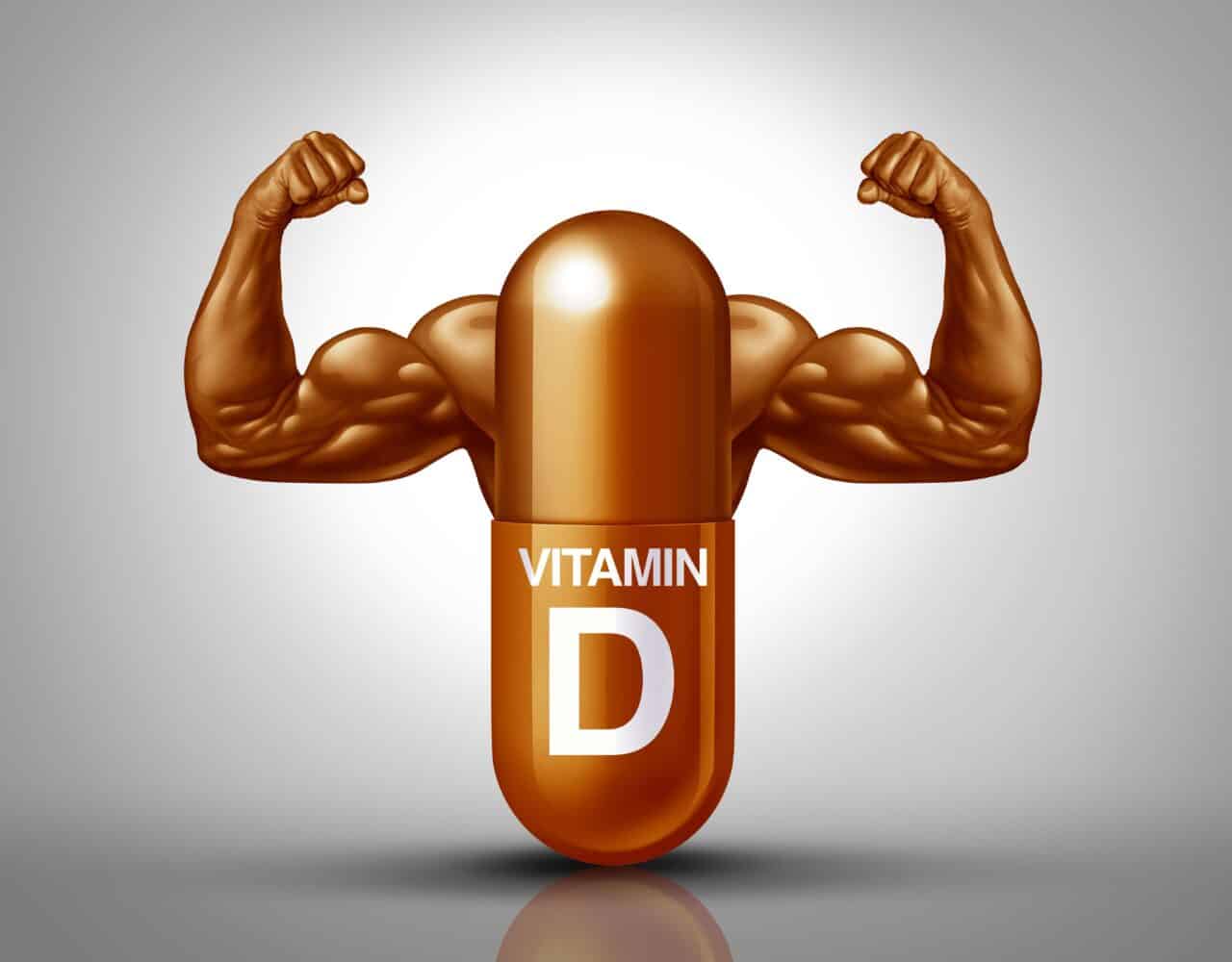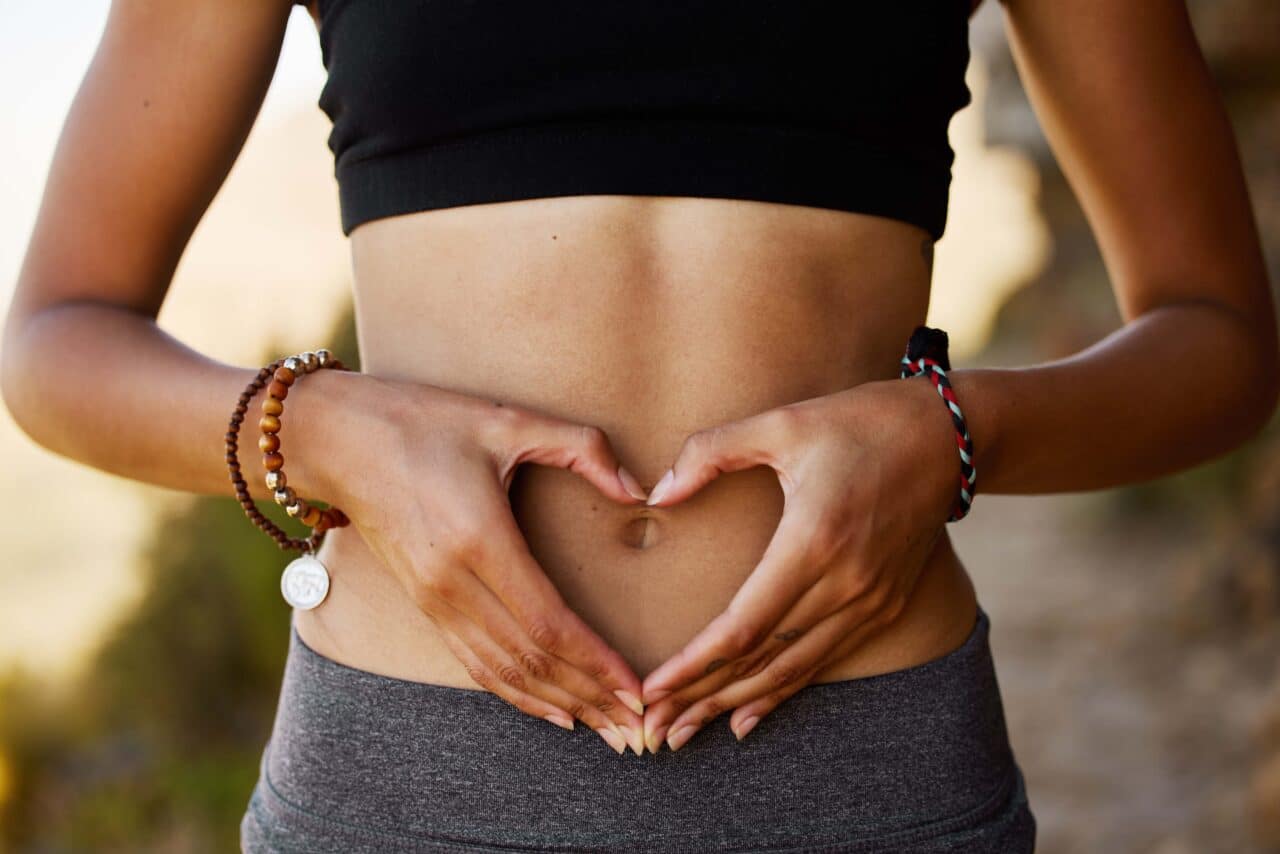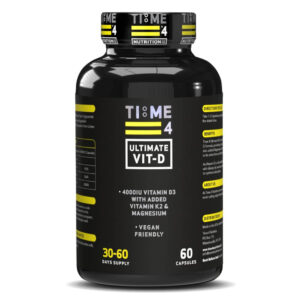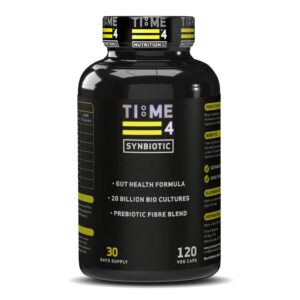The benefits of combining Vitamin D and probiotics for athletic performance
The Benefits of Combining Vitamin D and Probiotics for Athletic Performance
Vitamin D and Probiotics
The term ‘probiotics’ is likely to conjure up thoughts of gut health. This is with good reason, as the right balance of ‘friendly’ bacteria in the gut is essential for good digestive health. Similarly, vitamin D tends to be associated with bone health and development, and more recently, immune function. Again, with good reason, as many studies highlight the vital role vitamin D plays in these functions. Less well-known are the positive effects of probiotic and vitamin D supplementation on athletic performance. For example, supplementation with the bacteria L. Plantarum PS128 has been to shown to provide a significant increase endurance performance in athletes. While vitamin D has been shown to increase muscle strength, particularly in people who are vitamin D deficient, with higher blood levels being associated with reduced injury rates and improved sports performance.
Until now the effects of combining probiotics and vitamin D on athletic performance have not been thoroughly investigated, but the publication of two new studies is set to change that, with some very promising results.
Before we look at the studies, we need to understand exactly what vitamin D and probiotics are and what they do.

Understanding Vitamin D
Vitamin D is a fat-soluble vitamin, which plays an essential role in many functions of the body. These include promoting calcium absorption in the gut and maintaining adequate serum calcium and phosphate concentrations to enable normal bone and tooth mineralisation and to prevent hypocalcemic tetany (involuntary contraction of muscles, leading to cramps and spasms). It is also needed for bone growth and bone remodelling. Without sufficient vitamin D, bones can become thin, brittle, or misshapen.
Vitamin D has other roles in the body, including reduction of inflammation as well as modulation of such processes as cell growth, neuromuscular and immune function, glucose metabolism and maintaining the structure of teeth. It can help to reduce depression, aid weight loss and play a role in muscle growth and repair.
Over 1000 vitamin D–responsive genes have been identified. These affect muscle protein synthesis, muscle strength, muscle size, reaction time, balance, coordination, endurance, inflammation, and immunity, all of which are important for health and athletic performance.
There are two main types of vitamin D known as vitamin D3 (cholecalciferol) and vitamin D2 (ergocalciferol or calciferol). Although many supplements contain vitamin D in the form of vitamin D2, the science shows that D3 is more effective at raising blood levels of vitamin D and improving vitamin D status than D2.
The body typically requires an estimated 3000–5000 IU/day of vitamin D. However, the high levels of physical activity in athletes may result in increased physiological demand.
Despite the importance of vitamin D being well acknowledged, deficiency is very common. In fact, it is estimated that about 1 billion people worldwide have low levels of vitamin D, and the problem seems to be getting worse: deficiency rates have doubled from 1994 to 2004 with multiple factors responsible, including sun avoidance, sunblock use, and increasing obesity rates.
Although there is some scientific evidence that suggests that people who exercise regularly are more likely to have high vitamin D levels, deficiency amongst athletes is common. As we have already seen, the body requires an estimated 3000–5000 IU/day of vitamin D and the high levels of physical activity in athletes may result in an increased physiological need. Since vitamin D is actively used in many metabolic pathways, it is possible that athletes may require an increased intake to assure adequate availability and storage for optimal performance, as deficiencies have been shown to negatively impact various aspects of physical performance. For example, athletes who have lower vitamin D levels have been shown to score poorly on the Vertical Jump Test, Shuttle Run Test, Triple Hop for Distance Test, and the 1 RM Squat Test.
Just click here to learn more about vitamin D:

Understanding probiotics
While some bacteria are detrimental to good health, the importance of ‘good’ or ‘friendly’ bacteria is now widely acknowledged, with a range of probiotic food products and supplements available to encourage the growth and maintenance of healthy gut bacteria. This is with good reason when you consider that an estimated 70-85% of the immune system lies in the gut, and the bacteria in the gut outnumbers the cells of the body by approximately ten to one.
We have around 100 trillion micro-organisms in our gut, most of which are bacteria. In fact, the gut is home to up to 1,000 species of bacteria, which are sometimes referred to as gut flora or gut microbiota.
We still do not fully understand the relationship between health and gut bacteria, but it is clear that the microbiota and its host have a symbiotic relationship, which means that both parties benefit from the presence of the other. The host provides a favourable environment for the bacteria to flourish and in turn, the bacteria perform various important functions.
These include:
- Synthesising important substances including vitamins K and B and healthy fatty acids
- Maintaining the health of the gut lining to prevent infections crossing into the blood
- Breaking down fibre and cellulose into valuable compounds
- Supporting the immune system, keeping it healthy and functioning effectively
- Aiding nutrient absorption
- Contributing to heart and brain health
In recent years, it has become evident that the microbiota is not only essential for the normal health and functioning of the gut, but may even affect how we feel, reduce fatigue, help us to maintain a healthy bodyweight, improve athletic performance and increase muscle mass.
When the quantity and proportion of the friendly bacteria are reduced, the harmful strains and pathogens are allowed to grow unchecked, which can result in an imbalance known as dysbiosis. This can be serious, as it is often the precursor to a number of chronic health conditions ranging from irritable bowel syndrome (IBS) and inflammatory bowel disease to diabetes, heart disease, rheumatoid arthritis, Parkinson’s disease and certain cancers.
Dysbiosis in the gut is typically due to one or more of the following:
- Antibiotics and antibacterial medications
- Poor diet, such as the high consumption of sugars, refined starch and processed foods and food additives
- The presence of harmful chemicals and toxins in foods, such as pesticides on unwashed fruit, vegetables and cereals.
- Excessive alcohol consumption
- Poor dental hygiene, which allows bacteria to grow out of balance in the mouth
- High levels of stress, anxiety or depression, which negatively impact on the immune system
Just click here to learn more about probiotics

Vitamin D and Probiotics: Study 1
The first study (1) investigated the effects of vitamin D and probiotics on the anaerobic performance of mixed martial arts (MMA) fighters. The term ‘anaerobic’ refers to the work performed by the body’s energy systems that do not require oxygen. These are the ATP- phosphocreatine (PCR) system and anaerobic glycolysis. The ATP-PCR system is the predominant energy source for explosive maximal intensity activities of approximately 10-15 seconds duration, such as a maximal weight lift, the high jump, and 100m sprints, or an explosive combination of punches.
When the ATP-PCR system begins to fade at approximately 10-15 seconds, anaerobic glycolysis becomes the main energy source for maximal intensity activity lasting for 30-120 seconds, such as a 400m run or resistance training that involves long sets to failure with short rest periods. A by-product of this energy system is lactate.
During a very high intensity effort lasting 1-2 minutes, lactate levels rise steeply when the demand for ATP and oxygen exceeds supply. This is associated with an increase in acidity in the muscles and fatigue, which is often perceived as a burning sensation. It is important to note that contrary to popular belief lactate is not a waste product and can be used by the body to produce more energy.
MMA relies heavily on energy supplied by the anaerobic pathways, as short-term, high-intensity interval activity is essential component of the sport. It is well known that the metabolic response to this type of physical effort leads to the accumulation of blood lactate and other substances in skeletal muscles and in the blood, which contribute to fatigue and consequently impair physical performance. In fact, it has been shown that blood lactate levels can reaching up to 20.1 mmol/L from a resting level of 1-2 mmol/L after an MMA fight. Therefore, an athletes’ ability to remove or metabolise lactate has critical affect on their performance.
Study design
A 4-week randomized double-blind placebo-controlled trial was conducted with 23 MMA male athletes. They received either vitamin D3 or multi-strain probiotics and vitamin D3.
Anaerobic performance assessments were evaluated at the start of the study and during follow-up visits. These involved a five-minute warm-up followed by a series of 30-second ‘all out’ maximal effort sprints performed on an exercise cycle.
Results
The results showed that 4 weeks of supplementation with probiotics and vitamin D produced significantly lower lactate levels after the sprint intervals compared to vitamin D alone. In addition, the probiotics and vitamin D group increased total work and power. Furthermore, there was an improvement in the lactate utilisation in this group in comparison with the vitamin group.
These results show that changes in gut bacteria due to supplementation with probiotics and vitamin D enhanced the body’s ability to metabolise lactate and improved anaerobic performance significantly. You may be thinking why not just take the probiotics and save the price of vitamin D? It appears that vitamin D supplementation amplifies the positive effects of certain bacterial strains.
Interestingly, the researchers noted that when the MMA athletes were assessed before supplementation, their average vitamin D level was only 27.22 ng/mL, which is below the bare minimum recommend level of 30 ng/mL. Even after four weeks of supplementation with approximately 3500 IU/day vitamin, this had only risen to 28.35 ng/mL. Therefore, still below the recommended minimum. This led the researchers to conclude that 3500 IU/day of vitamin D3 supplementation seemed to be too low for professional MMA athletes.

Vitamin D and Probiotics: Study 2
The second study (2) investigated the effects of a combination of vitamin D3 and probiotics on the aerobic exercise performance of MMA fighters. It also investigated whether combined probiotic and vitamin D3 supplementation can modify the composition of the gut bacteria and epithelial cell permeability, and influence the inflammatory response. Epithelial cells are a type of cell that line the surfaces of organs and cavities in the body, including the gut, which form a protective barrier. They are selectively permeable, and so provide a level of control over what enters the body.
Aerobic exercise refers to those activities that are fuelled primarily by the aerobic energy system. This uses oxygen in the production of ATP primarily from the breakdown of carbohydrate and fatty acids. Hence, this process is sometimes referred to as the oxidative system. It is the predominant energy source for long duration, low intensity activities, such as distance running but also makes an important contribution to many other activities including MMA. Any low intensity activity of a greater duration than 3 minutes will be fuelled predominately by the oxidative system.
Study design
A 4-week clinical trial was conducted with 23 male MMA athletes randomly assigned to either a probiotic + vitamin D3group or a vitamin D3 alone group. The trial employed a double-blind, placebo-controlled design and involved measurements of inflammatory markers, gut bacteria composition, epithelial cell permeability, and aerobic exercise performance. This was assessed using graded cycle ergometry test. Participants performed a 5-minute warm-up at an intensity of 50 watts. The resistance was then increased every 3 minutes by 50 watts until the participants reached volitional exhaustion.
Results
After 4-weeks of supplementation, the results showed a significantly lower concentration of calprotectin (an indicator of inflammation in the bowel) in the probiotic +vitamin D group compared to pre-supplementation levels. The results also showed a significant improvement in the diversity of the gut bacteria and epithelial cell permeability in the probiotic +vitamin D group after the intervention. Furthermore, time to exhaustion in the exercise test increased from an average time of 8.26 minutes before supplementation with the probiotic and vitamin D to 9.31 minutes on completion of the study.
Although still not fully understood, these results help to highlight the potential beneficial connection between intestinal bacteria composition, muscle function, exercise performance and adaptation to training. As the authors of the study point out, this is particularly relevant if you participate in intense exercise. Although moderate physical activity has a positive influence on the composition of gut bacteria, overtraining may disturb the balance of healthy bacteria, which is particularly evident in professional athletes. Specifically, high volumes of exercise can reduce blood flow to the gut and negatively affect its lining. As a consequence, increased intestinal permeability occurs, which is often referred to as ‘leaky gut’. In this situation, negative changes occur in the bacteria, which promotes the growth of potentially harmful strains and reduction in the healthy strains.

Vitamin D and Probiotics: Conclusion
These two studies provide further evidence to support the concept of the ‘gut-muscle axis’. This describes how the gut bacteria can affect muscle mass, muscle quality and muscle function. It is associated with the modulation of inflammatory pathways, oxidative stress, anabolic and catabolic processes, glucose metabolism, mitochondrial function, and central nervous system health. All of which affect both aerobic and anaerobic performance, muscle function, and training adaptation (1). They also demonstrate the beneficial effects of vitamin D on the gut bacteria. Given the chronically low levels of vitamin D, even among athletes, and the prevalence of dysbiosis and their resultant effects on both health and performance, can you afford to neglect these two important aspects of your nutrition strategy?


